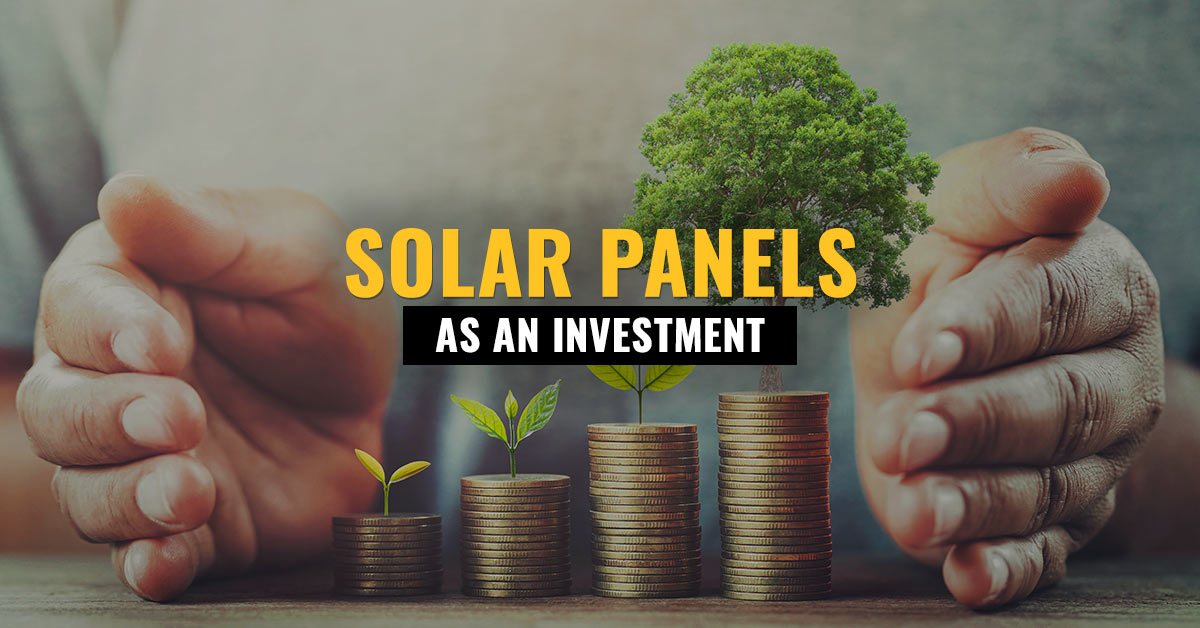Electricity costs from your home or business can be a strain on your budget. It can be tiresome paying the utility company, especially during periods of heavy usage. If you are looking to lower your electricity costs one option is that you can simply turn off your lights and use less air. If you aren’t looking to sacrifice your AC when it’s 100 degrees outside, then a better option is to install solar panels in your home.

You have most likely heard of solar panels and solar energy. These panels are able to convert sunlight into electricity. There are many benefits to solar panels, whether that is for the earth utilizing renewable energy, or for your bank account, but is solar the right choice for you?
Most often the reason that many people do not look into solar energy for their home or business is that they assume the cost is astronomical. The cost of solar panels varies depending on the size of your home, but also your location, and there are many ways to help reduce the installation costs. The installation costs of a solar system can be anywhere from $15,000 to $25,000. Although this might seem expensive, typically you can easily obtain financing and consolidate this into an easy monthly payment.
Beyond the initial investment of the system cost and panel investment, solar panel maintenance is fairly minimal. After the upfront cost, typically you will only need to make sure that your solar panels are kept clean. This is to ensure that any sunlight will not be blocked, which would make them less efficient.
Investing in solar also means that you will have a warranty of anywhere from 15 to 25 years. This allows you to feel comfortable in your investment when you choose to install solar.
Different states offer different opportunities in terms of tax savings when you install solar. These tax savings can help to offset the cost of your solar panel system. With the residential federal tax credit for home solar systems, you are able to claim 26% of your installation costs in 2020. In 2021, that credit drops to 22%. Despite this, the overall long term savings will make up for that lost 4% going into 2021.
ROI stands for return on investment, and the return you will get on your investment from solar typically depends on what you are currently spending on your electric bills. Although your solar panel system will be an upfront investment, the solar ROI is proven to pay for itself. This is because solar panels can easily generate enough electricity to power your home or business.
Even if you spend $15,000 to install an entire solar panel system, once you are eligible for a 26% federal tax credit, it will not take you much time at all to recoup your purchase (especially if your electric rates are high). For example, if you typically spend $200 per month on your electricity, it will only take you 56 months to break even. 56 months is less than five years, so after a payback period of 4 years and 8 months, you will be making money on your electricity bill – and that’s not including the added value to your home when you go to sell it!
Another financial benefit of solar power is that you can sell your unused solar-generated electricity to utility companies. This is considered net metering. Not only can this offset the power that is consumed at other times, but your energy bill will show your net energy consumption. Different states have different rules for net metering, but overall it can be incredibly beneficial.
After installing solar panels, the value of your home instantly increases. As you know, solar panels are an investment, as well as a process to install. By taking care of this installation you will automatically save the incoming residents money on their electricity bill, as well as the hassle of an install.
If you are someone who cares about the environment then going solar is the obvious choice for your home. Not only does solar mean you will save money, but it also means that your carbon footprint will be smaller, and you will be contributing to renewable energy sources.
Solar panels can save you a lot of money on electricity costs, and even increase the value of your home. Especially if you plan to stay in your home for many years to come, solar can greatly decrease your overall costs.
Despite the many positives, solar panels may not be the best choice for you. The most important thing to note is that solar panels do not work for every home design or location. In order to find out if solar can work for your home, contact us at Harmon Solar. We can determine whether or not your home will benefit from a solar installation, and if your electricity utilization is worth it.